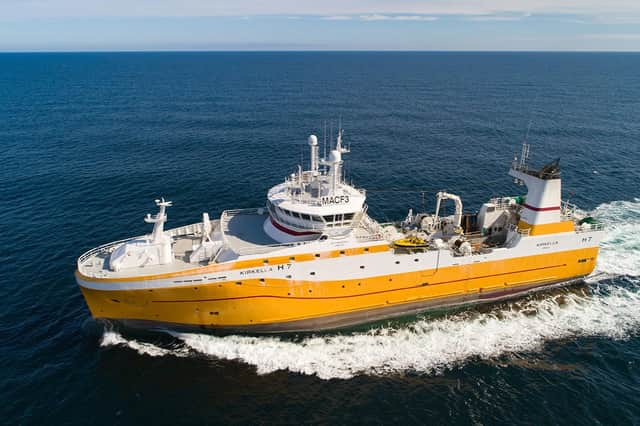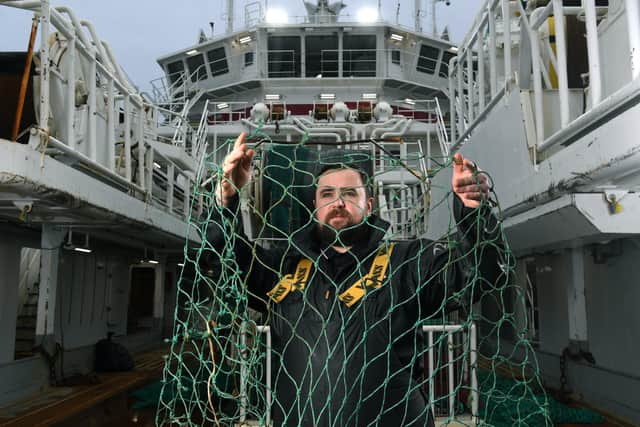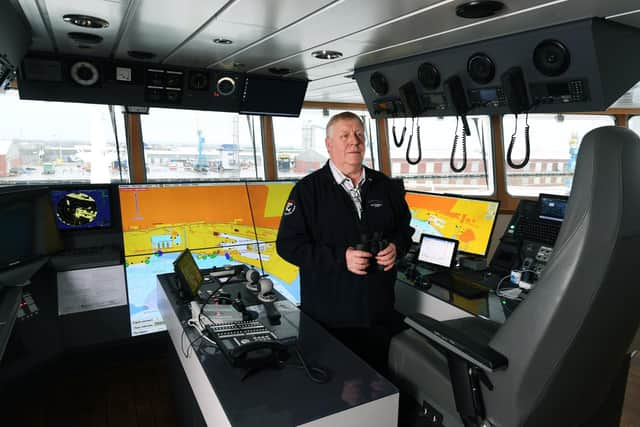Yorkshire's last distant water trawler, Hull's Kirkella, could be sold after 'derisory' deal between UK and Norway


Hull-based Kirkella, which once caught eight per cent of the fish sold in UK fish and chip shops, may now be sold, downsized or moved abroad, said UK Fisheries chief executive Jane Sandell.
Before Brexit, as a member of the EU, the state-of-the-art trawler was able to catch around 10,000 tonnes of Arctic cod in Norwegian waters, but this has now shrunk to a “derisory” 500 tonnes.
Advertisement
Hide AdAdvertisement
Hide Ad“To say we are disappointed would be the understatement of the century,” she said. “All the nice words (from the Government) are platitudes. The only conclusion you can come to is that they don’t care.


“To walk away with 500 tonnes when it would normally be thousands can’t be described as success.”
Norway is allocating the UK 6,550 tonnes of cod around Svalbard, which can be fished by Kirkella, which is run by a British company that is a joint venture between Samherji and Parlevliet & Van der Plas. However Ms Sandell said: “We’re seriously going to have to think about the way ahead, about possibly selling, downsizing or the shareholders might decide to take the investment out of the UK. It’s the hardest commercial decision we will have to make - it’s been forced on us.
“The worst thing is the crews - they have to stop playing fast and loose with the lives of the crews and their families.”
Advertisement
Hide AdAdvertisement
Hide AdHull East MP Karl Turner said Prime Minister Boris Johnson had a “lot to answer for” for promising huge benefits from cutting free from arrangements on fishing that existed long before the UK even joined the European Economic Community.


He said: “Despite the warm words the Government gave they have failed to deliver the catch needed for our proud fishing industry. This is further proof that this Tory government simply doesn’t care about the fishing industries and the communities in the North.”
A large proportion of the 60-odd crew who work on board the Kirkella is from the region.
First mate Charlie Waddy, 63, said he feared for younger shipmates with families to provide for. He said: “I’m hoping not, but I’m thinking the Government has sold us down the river, and it could be the end for Kirkella. For what quota they give us it wouldn’t feed the fish and chip shops in Hull.”
Advertisement
Hide AdAdvertisement
Hide AdThe Government said the UK fishing industry would gain access to 30,000 tonnes of whitefish stocks, such as cod, haddock and hake, in the North Sea, providing a “welcome” boost.
Fisheries Minister Victoria Prentis said the agreement on fishing arrangements for 2022 included the establishment of a mutual North Sea waters access zone.
She said: “This will provide fishing opportunities for the UK fleet and it ensures a strong balance that will benefit both our fishing industry and the protection of our marine environment.
“Norway is an extremely close partner of the UK, and we deeply value our relationship with them.”
Advertisement
Hide AdAdvertisement
Hide AdChief executive of the York-based National Federation of Fishing Organisations Barrie Deas said while it was good to have struck the deal between the two biggest players in the North Sea, the fishing opportunities were “considerably less” because of the lack of access to North East Arctic cod.
In the North Sea he said catches of haddock and whiting (up five per cent and 25 per cent) had been suppressed to protect cod, which has seen a 10 per cent cut.
He said: “I think it will be a number of years of incremental improvements before we get this agreement delivering its full mutual benefits.”